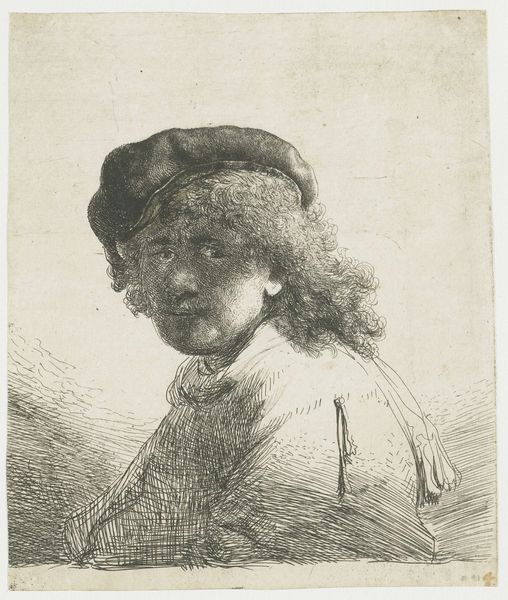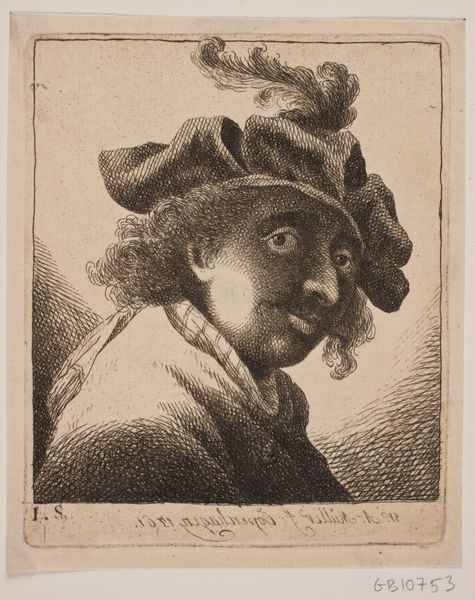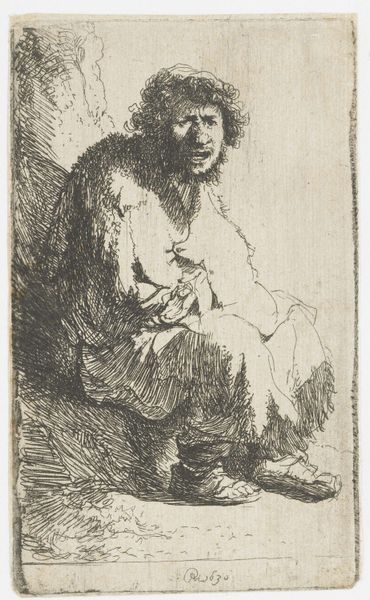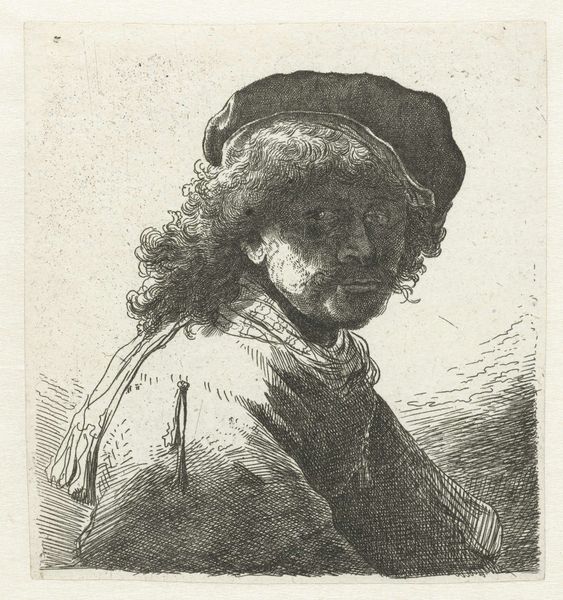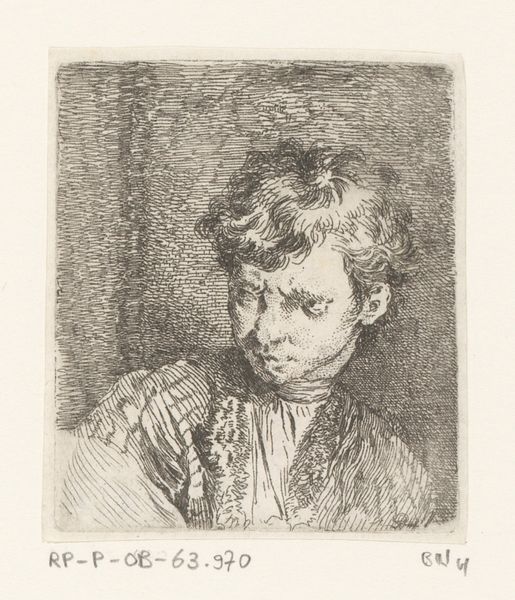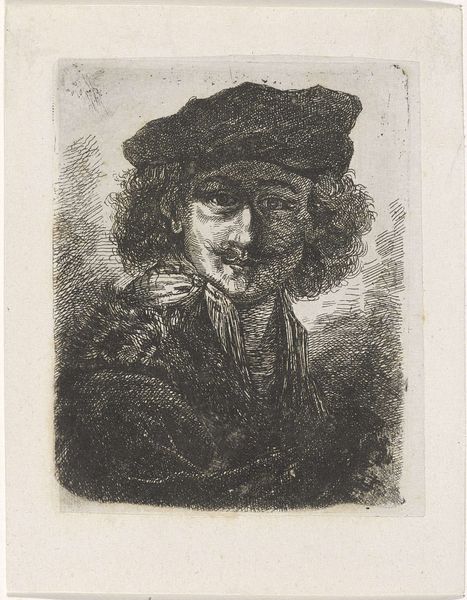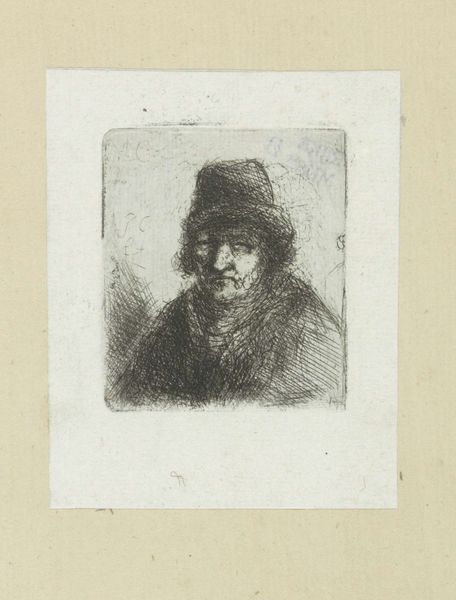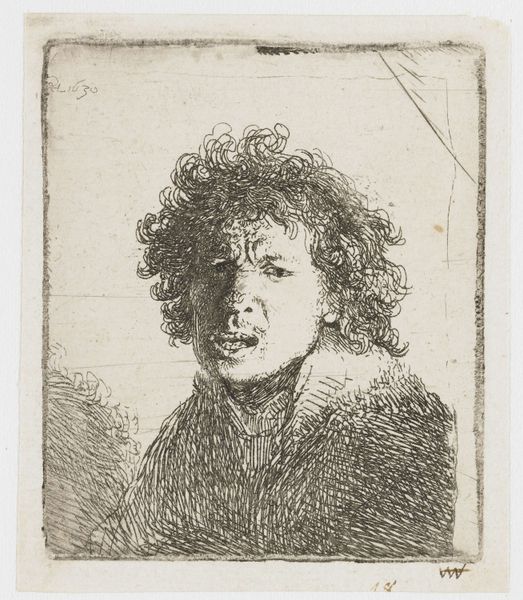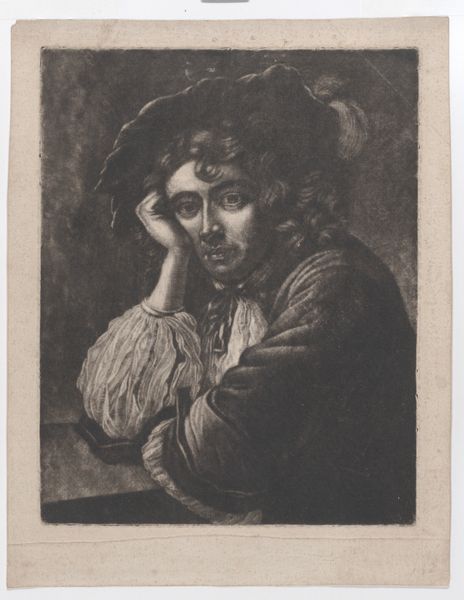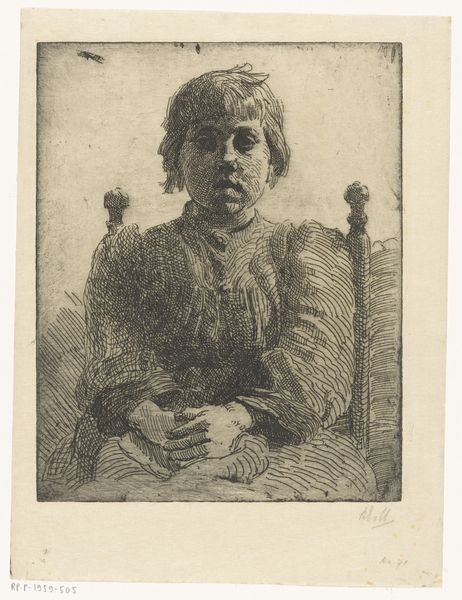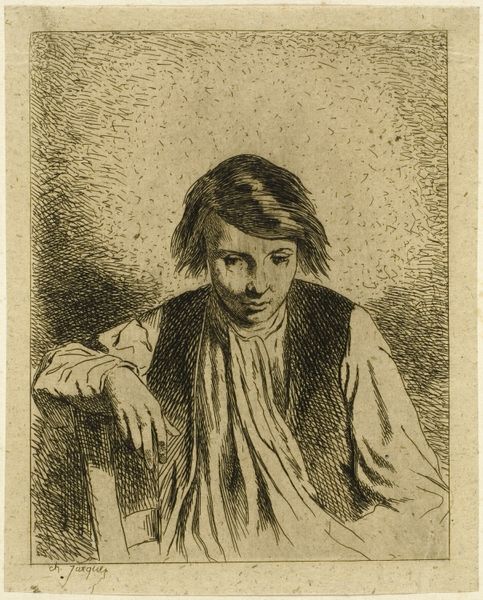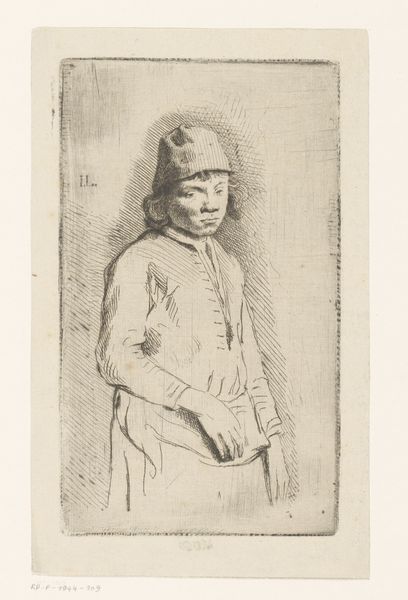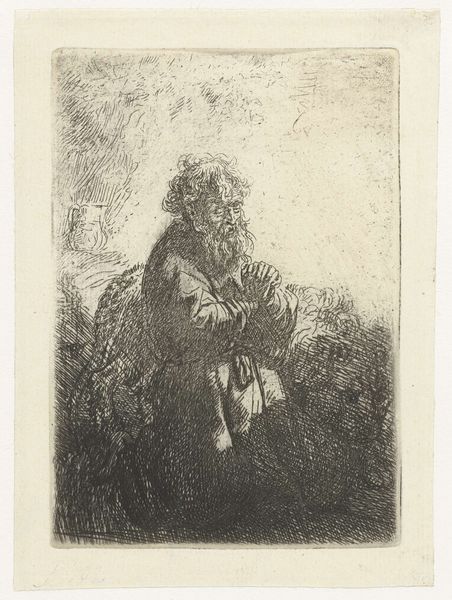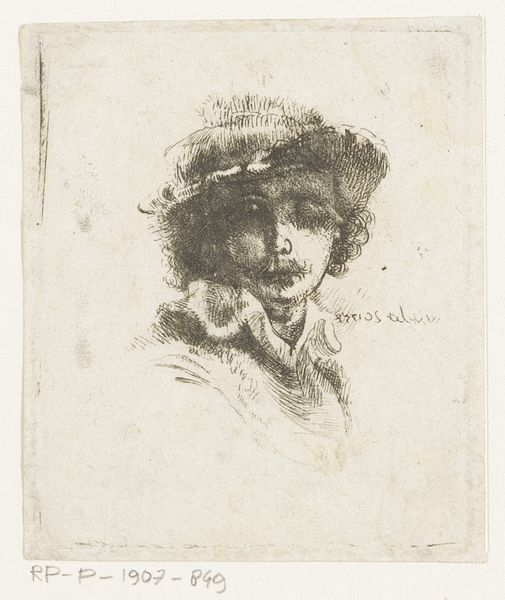
drawing, etching
#
portrait
#
drawing
#
self-portrait
#
baroque
#
head
#
dutch-golden-age
#
etching
#
figuration
#
line
Copyright: Public domain
Rembrandt van Rijn created this self-portrait in 1633 using etching. It's an interesting take on the conventions of portraiture. While portraiture was a lucrative genre for artists in 17th-century Netherlands, it was usually reserved for the wealthy merchant classes. Rembrandt challenges this social order by depicting himself as the subject of his own work. It raises questions about who has the right to be represented in art and who gets to decide the value of a portrait. Notice the dark shadows on his face. Is this a comment on the artist's own identity and inner thoughts? To truly understand this piece, we need to delve into the social and economic landscape of the Dutch Golden Age. It's important to consider not only the artist's personal life but also the patronage system and the art market of the time. Investigating these social structures through historical documents can shed light on the artwork's role in commenting on the norms of its time.
Comments
No comments
Be the first to comment and join the conversation on the ultimate creative platform.
